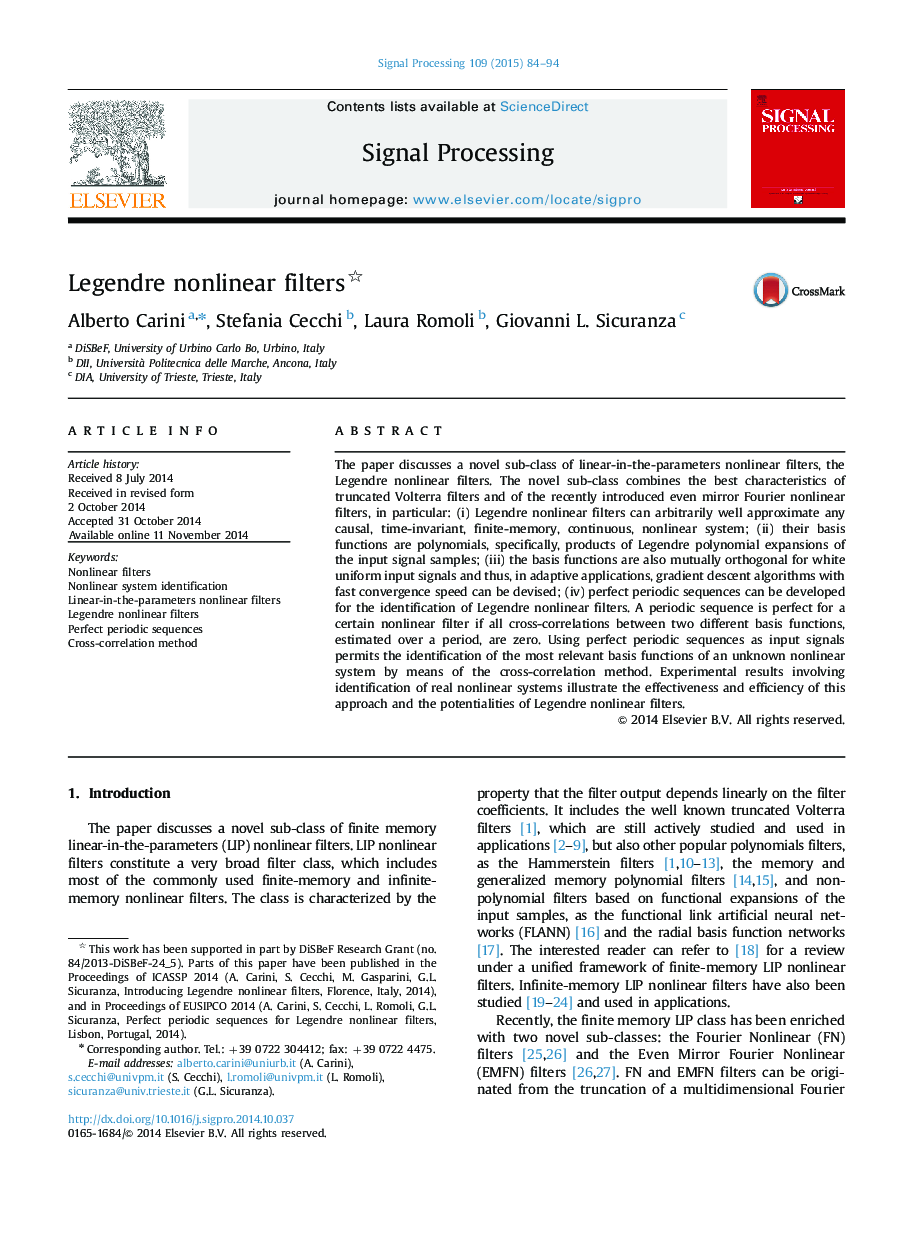| Article ID | Journal | Published Year | Pages | File Type |
|---|---|---|---|---|
| 562880 | Signal Processing | 2015 | 11 Pages |
•The paper discusses Legendre nonlinear (LN) filters.•LN filters arbitrarily well approximate any finite-memory continuous nonlinear system.•The basis functions are mutually orthogonal polynomials for white uniform inputs.•Perfect periodic sequences (PPSs) can be developed for their identification.•PPSs permit us to identify unknown systems by means of the cross-correlation method.
The paper discusses a novel sub-class of linear-in-the-parameters nonlinear filters, the Legendre nonlinear filters. The novel sub-class combines the best characteristics of truncated Volterra filters and of the recently introduced even mirror Fourier nonlinear filters, in particular: (i) Legendre nonlinear filters can arbitrarily well approximate any causal, time-invariant, finite-memory, continuous, nonlinear system; (ii) their basis functions are polynomials, specifically, products of Legendre polynomial expansions of the input signal samples; (iii) the basis functions are also mutually orthogonal for white uniform input signals and thus, in adaptive applications, gradient descent algorithms with fast convergence speed can be devised; (iv) perfect periodic sequences can be developed for the identification of Legendre nonlinear filters. A periodic sequence is perfect for a certain nonlinear filter if all cross-correlations between two different basis functions, estimated over a period, are zero. Using perfect periodic sequences as input signals permits the identification of the most relevant basis functions of an unknown nonlinear system by means of the cross-correlation method. Experimental results involving identification of real nonlinear systems illustrate the effectiveness and efficiency of this approach and the potentialities of Legendre nonlinear filters.
